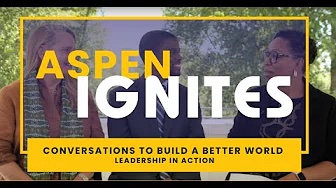Using My Voice: An Ascend Ambassador’s Story
I am a scrappy activist and advocate. The seeds of my activism were planted throughout my childhood. I was teased during my school years about my physical appearance, particularly my teeth. The ridicule was incredibly painful, but the pain I felt gave me a desire to fight for those deemed to be the “throwaways.”
When I entered Spelman College, I met people who, for the first time in my life, accepted and supported me unconditionally. My years as a student at Spelman cultivated and focused my activism towards improving women’s lives. Spelman taught me that I have a responsibility to use my talents in the service of others. It is the desire to be of service that led me to law school and drives my advocacy on behalf of single mothers and children. I never considered that one day I would actually live the life of a low-income single mother in need of someone to advocate on my behalf.
In February 2006 at the age of 43, I started over with two children, $120, an empty refrigerator, and two months of outstanding mortgage payments. I thought that starting over would not be difficult because I had the necessary educational and professional credentials. So I jumped on my proverbial bike and started pedaling as fast and as furiously as possible on what I believed would be a short journey towards rebuilding a new life for my children and myself. But my journey has been neither short nor easy. My journey brought me face-to-face with the traditional systems established to provide a safety net for low-income single mothers. I had to find a full-time job, preferably with health insurance, during a period of high unemployment. Until then, I had to care for my children with little to no money while simultaneously managing the mental and emotional issues that I kept stuffed inside during a difficult marriage. So I swallowed my pride and applied for jobs, made trips to food banks, applied for benefits, and accepted help from friends who have become like family. While time consuming, invasive, and at times frustrating, I did not find any of these designated safety net systems as exasperating as the child support system.
The child support system was created to provide financial support for children. While necessary, the child support system can be very complex and extremely frustrating. When I represented children in child custody and post-divorce decree matters, I observed custodial parents, primarily mothers, returning to court again and again in an attempt to secure payment of child support arrearages that were owed. In one of my cases, a mother forgave all but $8,000 of the $32,000 in back child support that was owed and released the father from paying any future child support. The remaining $8,000 was broken down into $500 monthly payments that have never been paid. However, the results in this case were not entirely negative; the non-custodial parent worked hard to mitigate his failure to pay child support by maintaining a close, ongoing relationship with his child and purchasing smaller items that he needed. Through regular visits and attendance at school and other extracurricular activities the non-custodial parent supported his son in meaningful ways.
At the outset of my own case, I decided that I would interact with the child support system as little as possible and only rely upon my income to take care of my children. This decision led me to conclude that single mothers, regardless of income level, would be better served if provided with opportunities to be educationally and economically independent. To accomplish this I believe that we must work collaboratively to provide low-income parents, mothers and fathers, with tools to achieve the educational and economic stability needed to ensure both children and their parents thrive. I was drawn to the two-generation approach and became an Ascend Ambassador because I believe in working collaboratively to move children and their parents toward opportunity. I intend to use my scrappy activism to educate policy stakeholders about the two-generation approach and how this initiative is being used throughout the United States to ensure the educational and economic stability of low-income parents and their children.
Related Posts



